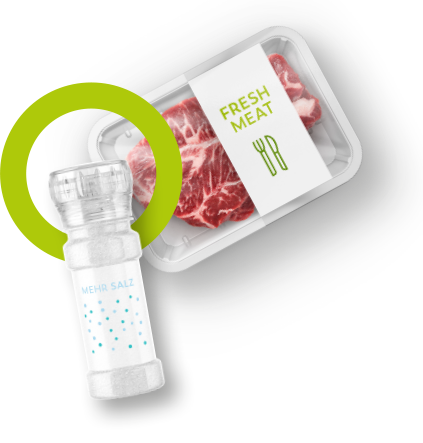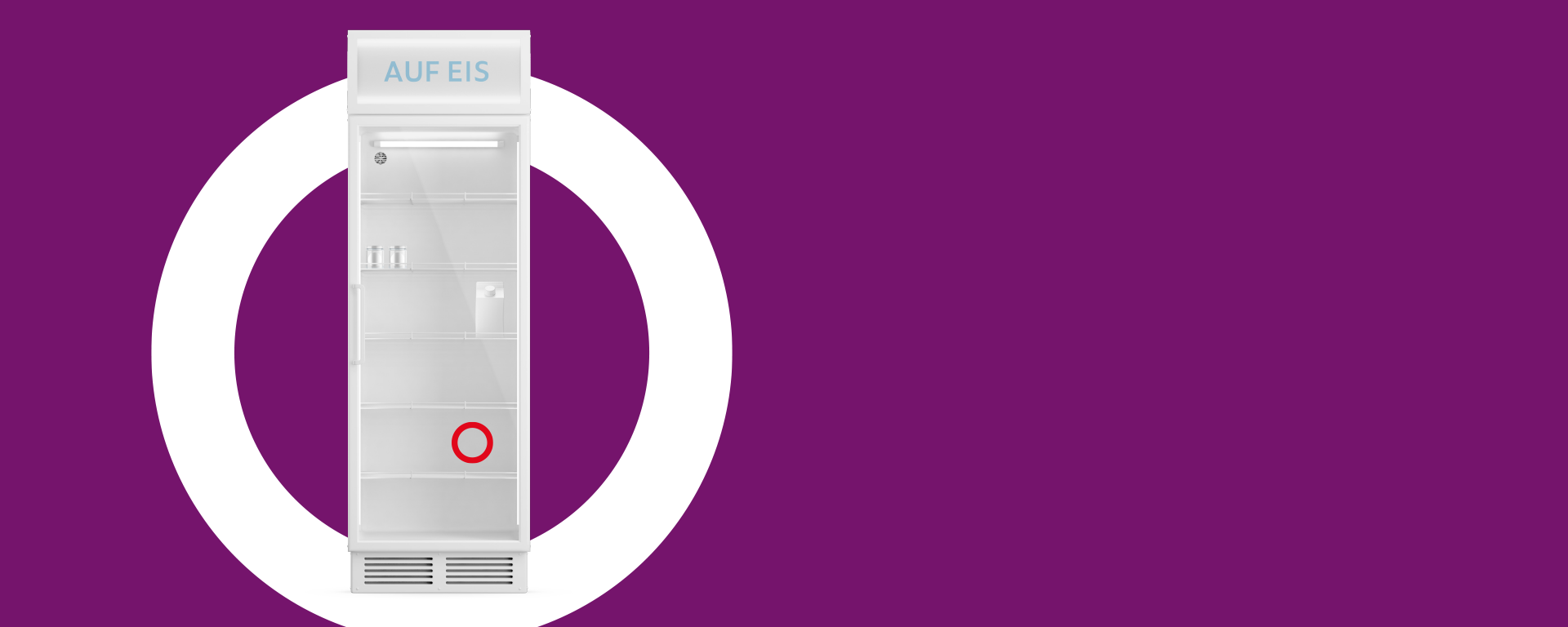All About Recyclate Supply
Suche
Standorte EKO-Punkt
Hier finden Sie alle EKO-Punkt-Niederlassungen wahlweise als Karten- oder Listendarstellung. Kontaktinformationen inklusive.
Make Sure You're Not Sold Out Before You're Even on the Shelf
Anyone who takes the Packaging Act lightly may soon be left with empty shelves. Better to get informed early – and avoid sales bans.
The Packaging Act – Serving a Greater Purpose
Germany Leads – in Packaging Waste Production
One of the main drivers: the boom in online retail, which has significantly increased packaging consumption in Germany since 2010. In response to the growing environmental impact of packaging waste, Germany introduced important legislative reforms in 2019. The previously valid Packaging Ordinance (VerpackV) was replaced by the updated Packaging Act (VerpackG), which puts a much stronger focus on recycling.
Among other things, the Packaging Act mandates the gradual increase of required recycling rates. To ensure these targets are met, producers and distributors who place packaging on the market are held accountable (see Dual System EKO-PUNKT).
At the same time, the law emphasizes that recycling is a shared responsibility. It’s not just up to retailers and the circular economy – consumers also play a vital role. After all, only packaging waste that is correctly separated, sorted, and collected can actually be recycled.
To support proper waste separation, the initiative “Mülltrennung wirkt” (Waste Separation Works) – launched by the dual systems – provides helpful guidance for consumers.
Increase from 2010 to 2018, Source: German Environment Agency (Umweltbundesamt)
Warning: Non-Compliance Can Be Costly – Learn About Potential Fines
On the Way to 100%: Legally Mandated Recycling Rates Recycling Rates
Driven by Penalties and Rewards: Increasing Recyclate Use for Sustainability
The Packaging Act and the Dual Systems – Adjustments for Greater Transparency and Efficiency
The Dual System for ensuring the return and recycling of packaging has existed since 1990. However, in practice, it revealed significant shortcomings and loopholes, allowing many initial distributors of packaging to bypass their licensing obligations — largely without consequences, and at the expense of both the public and fair competition.
To change that, the German Packaging Act (VerpackG) introduced the Central Packaging Register (ZSVR), which is overseen by the German Environment Agency (UBA) and monitors the activities of the dual systems – with typical German precision. In fact, every gram of licensed packaging material must be reported to the ZSVR. Flying under the radar or bypassing the Dual System is no longer an option – the register is publicly accessible.
The ZSVR also acts as a driving force behind increasing recycling efficiency. Among other things, it defines standards for the recyclability of packaging and updates them regularly. The same applies to the Packaging Act itself:
Every adjustment aims at one clear goal – achieving even greater recycling efficiency.

Amendments to the Packaging Act (VerpackG) since 2022
Time’s Up for Exceptions
Since July 2022, plastic beverage bottles and drink cans are consistently subject to a deposit. Previously, there had still been various exemptions in place.
Producer Responsibility
All producers placing packaging on the market in Germany are required to register with the Central Packaging Register (ZSVR).
Monitoring of System Participation
Online retailers and fulfillment providers are legally obligated to ensure strict compliance with system participation requirements for the products they distribute.
External Assistance
Notifications to the ZSVR no longer have to be submitted directly by the initial distributor; they can now be delegated to third parties or authorized representatives.
All distributors of packaged products must register with the Central Packaging Register (ZSVR) – regardless of whether their packaging is subject to system participation or not. Go to ZSVR registration
Say Goodbye to Fines and Warnings –
With EKO-PUNKT, Compliance Is Simple
Violations of the Packaging Act (VerpackG) or the system participation obligation identified by the Central Packaging Register (ZSVR) are reported to the enforcement authorities. Failure to register, or incorrect registration, can result in fines of up to €100,000. Proven non-participation in a Dual System can even lead to fines of up to €200,000 and is automatically accompanied by a sales ban.
And that’s not all: since all data submitted to the ZSVR is publicly accessible to market participants, competitors may also issue legal warnings (Abmahnungen).These are all good reasons to take the system participation obligation seriously. But that doesn’t mean it has to be complicated.
At EKO-PUNKT, your Packaging Competence Center, we help ensure that everything related to system participation is handled legally and correctly – so you can stay compliant with ease.
„Transparent, fair, and on equal footing – as a Dual System, we are a trusted partner for both small and large customers alike..“
Sebastian Vollbrecht, Managing Director of EKO-PUNKT

Unlocking Potential – As Much as Possible
To steer and improve recycling efficiency, the Packaging Act sets concrete and progressively stricter requirements for recycling rates across different packaging types.
The most recent step-by-step plan, in effect since 2022, calls for a significant increase in recycling rates—particularly for composite packaging materials. But even with plastics, there is still room for improvement compared to established recycling champions like glass, cardboard, and metal.
Of course, simply raising the legal recycling targets is not enough. They also need to be realistically achievable. This is where a sense of proportion is required from lawmakers. On one hand, it’s essential to consider what current technologies are capable of. On the other, ambitious quotas can—and should—serve as incentives to further drive innovation in recycling technology.
A great example of what’s possible can be found within the REMONDIS Group, to which EKO-PUNKT belongs. In Erftstadt, near Cologne, REMONDIS operates one of Germany’s largest and most advanced sorting facilities for lightweight packaging (LVP).



Legally Mandated Recycling Rates for Recyclables (§16 VerpackG)


Curious About the Sustainability of Your Packaging?
Discover the potential – with our Recyclability Check

Towards Climate Neutrality – One Recyclate at a Time
As part of the EU Green Deal and the plan to make Europe climate neutral by 2050, the role of the circular economy in achieving this goal is gaining increasing attention. The European Commission and the Circular Plastics Alliance aim to use ten million tonnes of recyclates in plastic products across Europe by 2025.
This is a highly worthwhile goal from a climate protection perspective, as every kilogram of recycled plastic granulate used helps reduce CO₂ emissions.
This EU-level initiative is already influencing national policies and legislation. For example, the coalition agreement of the German government elected in 2021 includes commitments to establishing mandatory minimum quotas for recyclates.
The 2021 amendment of the Packaging Act (VerpackG) also addresses this topic: Section 21(4) outlines a potential incentive model for promoting the use of recyclates.
Rewards and Sanctions – All About Plastic
The specific form in which recyclate use will be incentivized in the future is still undecided.
A research project by the German Environment Agency (UBA) on this topic has been completed. The responsibility now lies with the UBA and policymakers.
There are strong indications that a combined bonus-malus system will be introduced. In concrete terms, this means that non-recyclable or poorly recyclable packaging will be penalized, while the use of recyclates or highly recyclable packaging will be financially rewarded.
The introduction of this new system, along with an amendment to the Packaging Act, is expected in 2024.
Packaging distributors subject to licensing obligations are well advised to start preparing now.
Those who continue placing non-recyclable packaging or packaging without recycled content on the market will face higher costs and a decline in competitiveness.
Do you know how recyclable your packaging really is? Let us find out for you

Recyclability Minimum Standard (ZSVR and German Environment Ministry)
On August 31, 2023, the Central Packaging Register (ZSVR) published the updated minimum standard for assessing the recyclability of packaging subject to system participation, in accordance with §21(3) of the Packaging Act (VerpackG). Download the current minimum standard now
Did you know? EKO-PUNKT not only supports packaging licensing – we also provide top-quality recycling raw materials and full-service circular contracting solutions.




